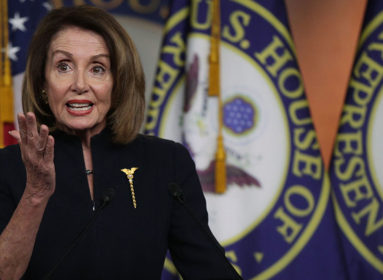By Alina Dain Sharoni / JointMedia News Service (JNS) ~
A picture of a burned Israeli bus appears among images of world terrorist attacks; a newspaper headline on Iranian President Mahmoud Ahmadinejad’s threat to wipe Israel off the map briefly crosses the screen. Those are the few fleeting references indirectly addressing Israel in “U.N. ME,” the new documentary on the corruption of the United Nations, which came out in theaters, video on demand, and iTunes on June 1.
As a self-described Zionist writer, director and producer, Ami Horowitz struggled with his decision not to address directly the UN’s policies regarding Israel, but “felt that in order to help Israel I had to ignore it,” he told JNS. And as the film quickly demonstrates, there is plenty of other material documenting the moral decline of the UN and pointing to the dubiousness of the organization’s frequent condemnations of the Jewish state.
In satire-style, Horowitz skillfully poses absurd questions to officials who either avoid answering him, or at best provide an even more absurd response. He speaks with Daffa-Alla Elhag Ali Osman, Sudan’s ambassador to the United Nations, who says “climate change” is the culprit for the crisis in Darfur. “So maybe the Prius (Hybrid car) is the answer to all our problems there,” Horowitz tells him.
But behind the humor, the picture is grim. The UN passed an anti-terrorism resolution after the 9/11 terrorist attacks. In spite of this, Horowitz fails to get a UN official to provide a straightforward definition of “terrorism.” As the film points out, the UN is simply unable or unwilling to name the aggressor.
Through interviews with a wide spectrum of sources, including former U.N. ambassador John Bolton, former CIA Director James Woolsey, and former U.N. weapons inspector Charles Duelfer, a larger picture emerges. Countries that are essentially dictatorships, some of which are implicated in terrorism and whose governments routinely violate the human rights of their citizens, are frequently members of the Security or Human Rights Councils. Iranian President Mahmoud Ahmadinejad spoke at the 2009 United Nations World Conference Against Racism (WCAR) in Geneva, Switzerland, calling Israel a “most aggressive, racist country.” The UN allowed this despite the fact that the Iranian government routinely discriminates against, if not persecutes, women and homosexuals.
“U.N.ME” focuses on a few major examples illustrating everything from UN corruption to actual criminal activity. In one section, the film goes over the UN Security Council’s Oil-for-Food Programme, which allowed Iraq to sell oil in exchange for food and supplies in 1996. Instead, UN employees mismanaged the program, allowing Saddam Hussein to make $1.8 billion by illegally exploiting the plan. Just two years earlier, UN leadership told peacekeepers in Rwanda not to intervene despite legitimate indications of a potential genocide. When the violence started and about 2,500 Tutsis sought refuge in the Ecole Technique Officielle (ETO) in Kigali, the UN peacekeepers guarding the school abandoned it, leaving the refugees to be slaughtered by the Hutu militia. It was later discovered that Boutros Boutros-Ghali, then Secretary-General of the UN, had previously facilitated an arms deal that sold weapons to Rwanda.
The film reveals another ugly side of the UN peacekeeping tradition. A large number of UN peacekeeping missions around the world have been implicated in charges of sexual abuse and pedophilia.
But efforts to investigate such allegations and hold the culprits accountable often lag, if not fall apart altogether.
Horowitz believes the UN should either “reform or die.” “I think the U.S. should use its money as an opportunity to help the UN,” he said, by only giving it money based on substantial reforms.
Why does the U.S. continue being a member? Why, according to the state department, did the administration budget for 2011 request more than $516 million for the UN regular budget? How bad does the tipping point need to be for someone to take real action? So far, there doesn’t seem to be an answer.







 Southern New England Jewish Ledger
Southern New England Jewish Ledger
















